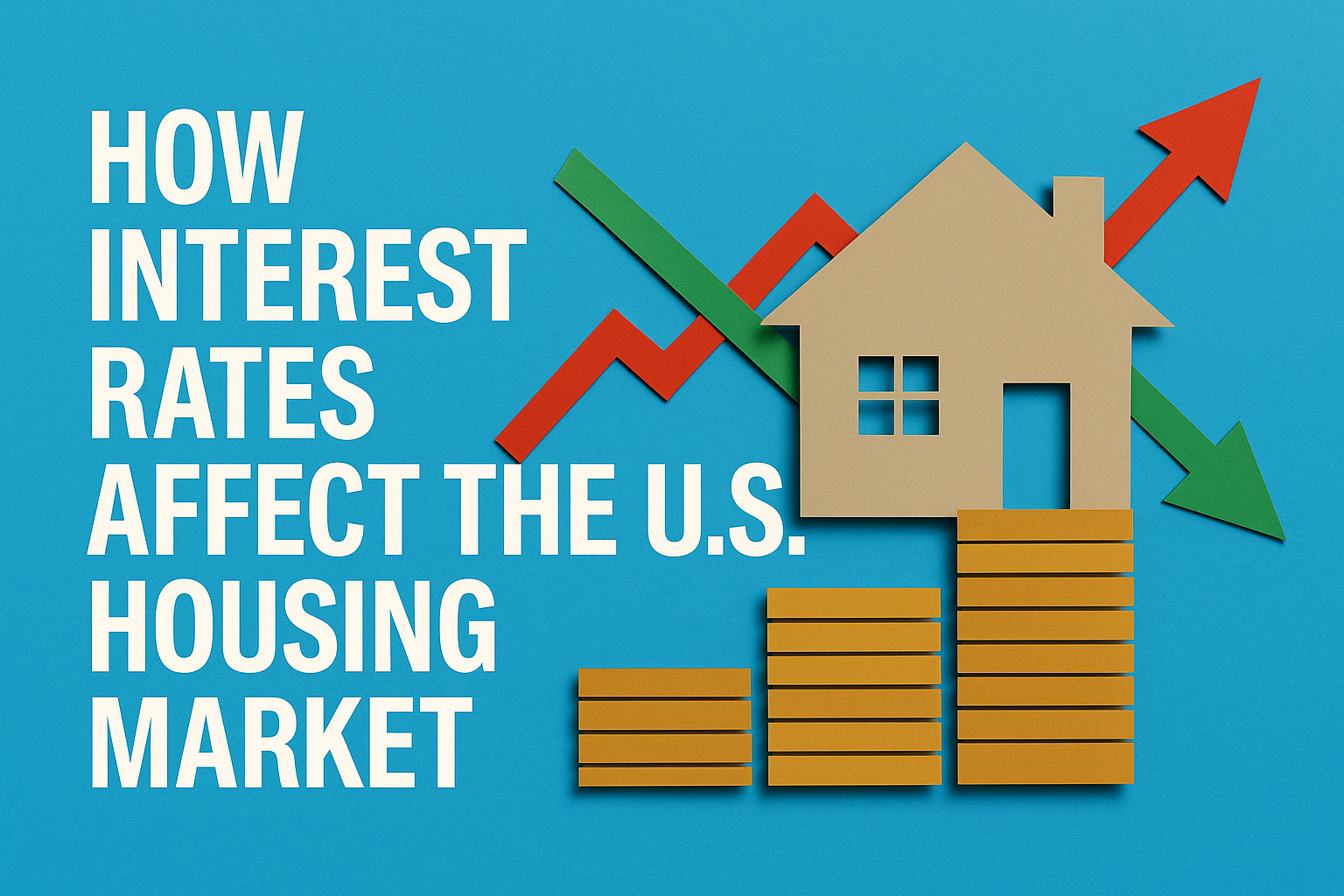How Interest Rates Affect the U.S. Housing Market
How Interest Rates Affect the U.S. Housing Market
Interest rates are one of the most influential factors in the U.S. housing market. When the Federal Reserve (the Fed) adjusts interest rates, it sends ripple effects through mortgage costs, home affordability, buyer demand, and even home prices. Understanding these dynamics can help buyers, sellers, and investors make better decisions.
1. What Are Interest Rates and Why Do They Matter?
Interest rates represent the cost of borrowing money. When you take out a mortgage, your lender charges interest on the loan amount.
Lower interest rates: Reduce the cost of borrowing, making monthly mortgage payments more affordable.
Higher interest rates: Increase borrowing costs, leading to larger monthly payments and decreased affordability.
The Fed does not directly set mortgage rates, but its actions (raising or lowering the federal funds rate) heavily influence the broader lending market.
2. How Interest Rates Impact Homebuyer Demand
Low interest rates tend to spark housing demand because buyers can afford larger loans and higher-priced homes. For example, a 30-year mortgage at 3% can result in a much lower monthly payment compared to the same loan at 7%.
Conversely, high interest rates often cool buyer demand. As payments rise, fewer people qualify for mortgages, and buyers may opt to rent or wait for rates to drop. This can lead to a slowdown in the housing market.
3. Home Prices and Market Dynamics
The relationship between interest rates and home prices can be summarized simply:
Falling rates → Increased demand → Upward pressure on home prices
Rising rates → Reduced demand → Downward pressure or slower growth in home prices
However, housing inventory also plays a role. In markets with very low supply, home prices may remain high even if interest rates rise.
4. Effects on Home Sellers
When rates are high, sellers may struggle to attract buyers. Homes can stay on the market longer, and price reductions may become common. Sellers might also hesitate to list their homes if they hold a mortgage with a much lower rate than what is currently available. This phenomenon, called the "lock-in effect," can further restrict inventory.
5. Broader Economic Impact
Interest rates also influence the broader economy, which in turn affects the housing market:
Higher rates can slow economic growth, reduce consumer spending, and increase unemployment—factors that weaken housing demand.
Lower rates can stimulate growth, increase consumer confidence, and bolster home sales.
6. What’s Happening in Today’s Market?
As of recent years, the Fed’s aggressive rate hikes have driven mortgage rates to highs not seen in decades. This has cooled demand, but housing supply remains historically low in many parts of the country, preventing significant price drops.
Buyers are adjusting by:
Choosing adjustable-rate mortgages (ARMs)
Seeking smaller homes
Waiting for potential rate cuts
Sellers, meanwhile, are often holding off on listing their homes, tightening supply even further.
7. Tips for Buyers and Sellers
For Buyers:
Shop around for the best mortgage rate; even a 0.5% difference can save thousands.
Consider locking in a rate if you find a good one.
Be realistic about affordability and future rate changes.
For Sellers:
Price competitively if rates are high.
Highlight energy efficiency and low operating costs, which appeal to buyers facing higher borrowing costs.
Key Takeaway
Interest rates shape almost every aspect of the housing market. When rates are low, buyers gain more purchasing power, often driving up home prices. When rates rise, affordability drops, and the market cools. Keeping an eye on interest rate trends—and understanding how they influence supply, demand, and prices—can help you navigate the U.S. housing market with confidence.
Read More







